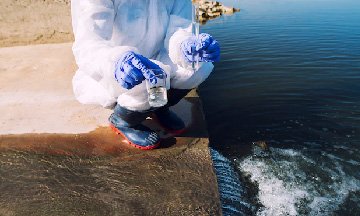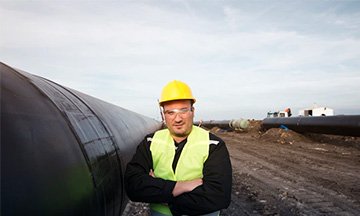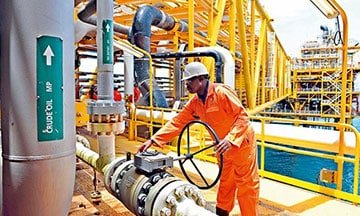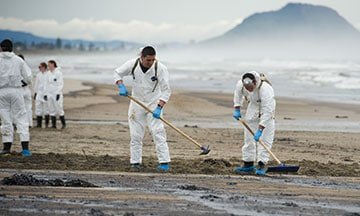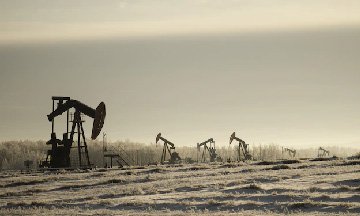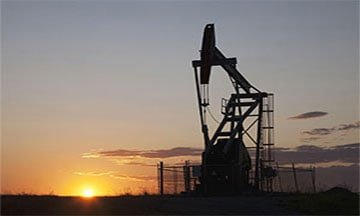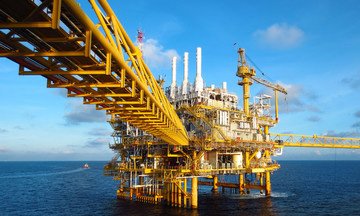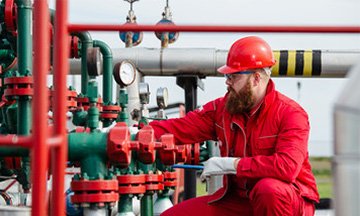Oil Refinery & Petrochemical Industry Wastewater Treatment Plant, Process, Stages, Methods, and Technology
| Date | Venue | Duration | Fees | |
|---|---|---|---|---|
| 28 Apr - 09 May, 2024 | Doha | 10 Days | $9150 | Register |
| 13 May - 17 May, 2024 | Dubai | 5 Days | $4750 | Register |
| 19 May - 30 May, 2024 | Doha | 10 Days | $9150 | Register |
| 24 Jun - 28 Jun, 2024 | Dubai | 5 Days | $4750 | Register |
| 21 Jul - 25 Jul, 2024 | Doha | 5 Days | $4950 | Register |
| 29 Jul - 02 Aug, 2024 | Dubai | 5 Days | $4750 | Register |
| 19 Aug - 23 Aug, 2024 | New York | 5 Days | $5695 | Register |
| 26 Aug - 30 Aug, 2024 | Dubai | 5 Days | $4750 | Register |
| 02 Sep - 06 Sep, 2024 | Dubai | 5 Days | $4750 | Register |
| 21 Oct - 25 Oct, 2024 | Dubai | 5 Days | $4750 | Register |
| 28 Oct - 08 Nov, 2024 | Toronto | 10 Days | $9850 | Register |
| 11 Nov - 15 Nov, 2024 | Dubai | 5 Days | $4750 | Register |
| 18 Nov - 29 Nov, 2024 | New York | 10 Days | $9850 | Register |
| 16 Dec - 20 Dec, 2024 | Dubai | 5 Days | $4750 | Register |
Course Overview
Industries built around petrochemical products generate huge volumes of wastewaters. Due to this, most of the environmental legislation and regulations are getting stricter. Wastewater disposal and treatment methods, processes, and technologies must be interrogated and improved by every company involved in the petrochemical business to save on diminishing fresh water resources. Efficient management and recycling of wastewater are important for these industries to improve their methods and processes of disposing wastewaters.
What are the wastewater treatment technologies?
This course interrogates the methods, processes, stages, and new technology involved in the refinement of wastewater. It intends to analyse after identifying the main issues involved with wastewater. Some of the methods and processes that will be looked into include biological treatment, membrane cleaning and separation technology, coagulation, oxidation systems, flotation, and combined technologies. Ultimately, these methods intend to refine the disposed water from petrochemical industries in pursuit of making profits while adhering to the existing environmental legislation and regulations.
What do you mean by wastewater treatment plants?
WWTP (wastewater treatment plants) that are set up in oil refining industries play a vital role in treating and disposing of the wastewater. Different configurations are used together with various technologies and techniques to help refine the wastewater. It is, therefore, very important for our environment to understand these methods and techniques. The course will handle the following:
- Latest technologies that are being employed in refining wastewater
- Industry trends and developments
- Conventional and traditional water refinement plants
- Known sources of water contaminants
- WWTP effects and advantages
In this course, the participants will have the opportunity to go over the main technologies used in refining wastewater and improvements that are being made. It will provide the attendants with the knowledge and skills required to enhance their understanding of wastewater treatment.
Wastewater plays an important role in determining a petrochemical’s company minimisation techniques and cost optimisation. With careful management, the profitability of a petrochemical company can increase tremendously because of re-using resources, avoiding government and legal conflicts, and better use of resources. This course optimises all the aspects of wastewater management, including sludge management, filtration, desalting, sedimentation, skimming devices, BOD, COD, aquatic biology application on wastewater, and refinery.
Course Objectives
The main goals of this course are to enable participants with:
- Gaining extensive knowledge and skills in recovering wastewater, recycling, re-using on-site, and reducing or cutting entirely freshwater intake to fulfil environmental legislation
- Knowing the operability, reliability, and maintainability of various equipment
- Developing concrete skills in cost-effective technologies selection to aid in reducing wastewater disposal volumes and achieving zero liquid discharge (ZLD)
- Developing skills to learn the main principles, purpose, limitations of different wastewater handling technologies involved in oil refining and such industries
- Understanding the existing industry-standard targets and acceptable practices for wastewater before discharge or internal re-use
- Modifying the existing operational conditions to meet the minimum properties of incoming polluted wastewater
- Learning how to cut down the energy used and hence reduce operational costs
- Acknowledging the impacts of pollution on the currently already polluted environment
- Ability to lessen the environmental effects of wastewater
- Skills to eliminate wastewater pollutant that could have otherwise polluted fresh water
- Promote a safe environment for natural resources development such as aqua life
Training Methodology
This Zoe course shall involve the following training methods: – Impactful presentations with relevant examples, both group and individual assignments, illustrations in the form of case studies, lectures, and videos.
All the materials shall be facilitated by highly decorated professionals in their domain of operations. Participants are encouraged to contribute often to make the course interactive despite the intensity of it At Zoe, we follow the ‘Do-Review-Learn-Apply’ model of training application.
Here are the methods that will be used:
- Lectures
- Group discussions
- Individual discussions
- Case studies
- Presentations
- Functional exercises
Organisational Benefits
Organisations sending their professionals to take this course will benefit in the following ways:
- Improve adherence to various environmental legislations
- Highly improve awareness when negotiating with WWTP consultants and vendors
- Selecting the right water refinement technology
- Continuous training of other employees
- Provision of the necessary skills to the employees to enable the realisation of treatment designs
- Improved ways of refining wastewater and hence reducing the cost of operations
- Enhanced abilities and skilled workers who can design wastewater treatment from operations, to analysis and finally selection of the right wastewater design
- Establish discussions around environmental protection
- Assist technical committees in creating and publishing standards that will guide the organisation in terms of waste disposal
Personal Benefits
- Enhanced analytical thinking to promote higher creativity in selection, analysis, and adoption of new wastewater treatment plants
- Better understanding of processes, principles, and handling of wastewater re-use and treatment in petrochemicals plants, refinery plants, and evaluation of treatment methodology
- Familiarization with the latest technologies and methodologies of wastewater treatment
- Advanced skills to troubleshoot, improve, and manage existing wastewater plants
Who Should Attend?
- Maintenance engineers working in petrochemical industries
- Any professional who would wish to be knowledgeable in wastewater handling
- Operational personnel
- Supervisors
- Technologists who work in wastewater treatment
- Process engineers
- All the people who work in waste water treatment
- Refinery plant managers
- Petrochemical managers
Course Outline
Module 1: Overview of Petrochemical Plant and Wastewater Management
- Refinery products
- Petrochemical industries product
- Raw materials used in petrochemical industries
- Refinery best configuration
Module 2: Water in Petrochemical
- Water for petrochemical industries processes
- Sources of water for industries
- Overall water refinery balancing
- Outlet water from refineries
- Raw water handling
- Refinery water handling
- WWTP best practices
Module 3: Online Analysers and Analytical Methods
- Water components (hydrocarbon)
- COD (chemical oxygen demand
- Hydrocarbons equivalent in consideration of COD and BOD5
- BODs
Module 4: Wastewater Components
- Aquatic water sources and their biology
- Elements of wastewater
Module 5: Primary Treatment of Wastewater
- Oil skimming equipment
- Sedimentation process
- Particle settling handling
- Separation of oil from water
- CPI
Module 6: Effluent Water Treatment
- Desalters
- Oil/water desalters
- VOC control
- Unit processes in water handling
Module 7: Biological Management of Water
- Options in biological treatment
- Sludge volume index
- Aerators
- Activated sludge remedial actions
- Biological/secondary treatment
- IAF (induced air flotation)
- Coagulation
- DAF (dissolved air flotation)
- Flocculation
Module 8: Advanced Treatment
- Activated carbon method
- Membrane bioreactor method
- Sand filtration method
- Powdered activated carbon method
- Oxidation ditches
- Biological clarification
- Sequencing batch reactor
- Chemical oxidation
- Dewatering sludge
- Thickening of sludge
- Pumping sludge
- Static thickener
Module 9: Sludge Treatment
- Sludge treatment
- Bioremediation
- API separator
- DGF/IGF
- Stabilisation
- Aerobic
- Mesophilic
- Simultaneous AS
- Sewage sludge
- Sludge and agricultural
Module 10: Recycling
- Technology used in wastewater treatment
- Recycling and re-using
- Firewater
- Boiler feedwater
- Cooling tower
- Re-use of non-contaminated stormwater
- Re-use of wastewater
- Microfiltration
- Osmosis
- Media filtration
- Zero Liquid Discharge
